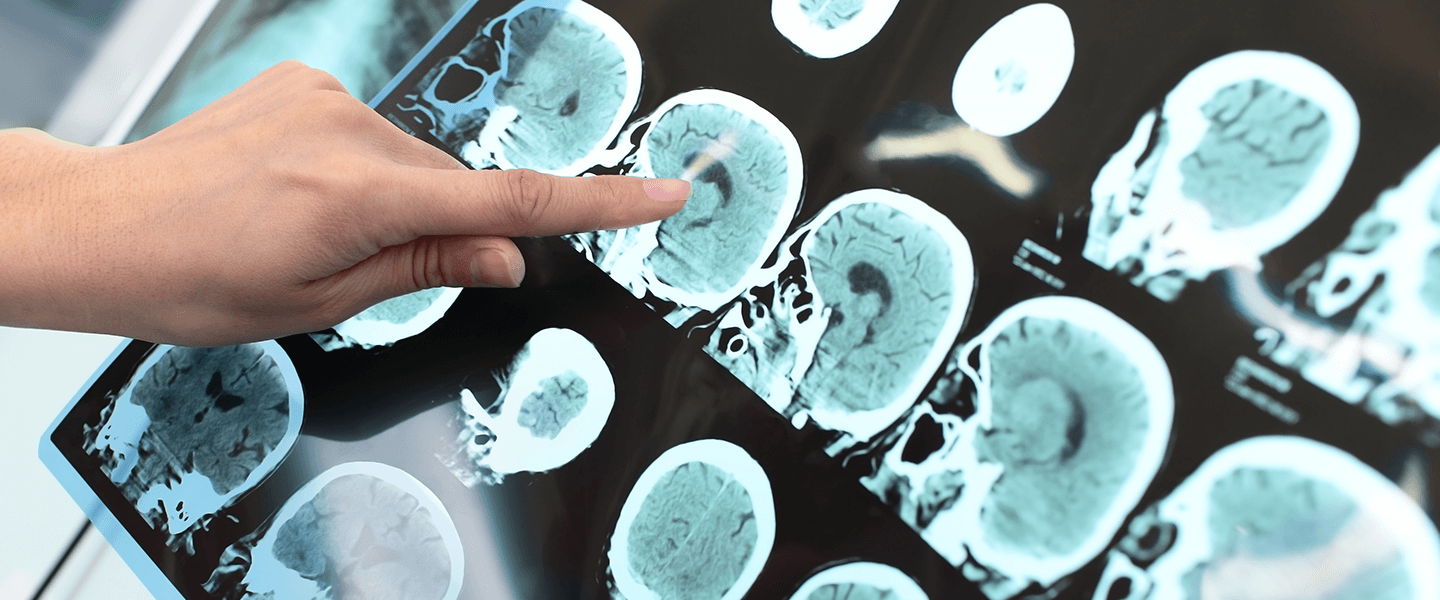Deep-Brain Stimulation Showed Multi-Year Effectiveness in Severely Depressed, Treatment-Resistant Patients
Deep-Brain Stimulation Showed Multi-Year Effectiveness in Severely Depressed, Treatment-Resistant Patients

A new long-term follow-up study of 28 people whose serious, treatment-resistant major depression was treated surgically with deep-brain stimulation (DBS) has found that “most of the patients experienced a robust and sustained antidepressant response.” The follow-up period ranged from 4 to 8 years, depending on the date when the surgical procedure was performed.
Authors of the study, which appeared in the American Journal of Psychiatry, say these results justify continued clinical testing of DBS, since the level of relief it provided to many of the participants over time “is unmatched by other treatment modalities in patients with symptoms with this degree of treatment resistance.” Participants in the study had failed to respond to at least four prior antidepressant treatments, including electroconvulsive therapy (ECT) at least once.
Among people with major depressive disorder, an estimated one-third do not respond to standard therapies, which include psychotherapy, antidepressant medications, and various forms of brain stimulation.
DBS requires an invasive procedure involving the implantation of a battery-powered device often compared with a cardiac pacemaker. Via precisely positioned electrodes, it delivers continuous stimulation to a small area in the brain called Area 25 and the surrounding subcallosal cingulate white matter, which are implicated in depression. Multiple published studies by different teams over the years have been inconsistent in assessing the short-term impact of DBS, one of the factors that motivated the newly published long-term study.
DBS for treatment-resistant patients with severe major depression was pioneered in 2005 by a team co-led by Helen S. Mayberg, M.D. and colleagues at the University of Toronto, work that was supported by Dr. Mayberg’s 2002 BBRF Distinguished Investigator award. She is the senior author of the new study. A three-time BBRF grantee, winner of the Falcone Prize in 2007 and a BBRF Scientific Council member, she has continued to study DBS over the years, currently at the Icahn School of Medicine at Mount Sinai, where she is Professor and Director of the Center of Advanced Circuit Therapeutics.
The efficacy of DBS for severe, refractory major depression was called into question several years ago, when a multi-center clinical trial was halted by its industry sponsors after only 6 months, a cut-off point chosen in advance. At that point, statistical evidence of the procedure’s advantage over placebo had not yet been demonstrated.
“Despite the fact that larger trials were halted early,” Dr. Mayberg comments, “what my colleagues and I were seeing as we continued to follow patients from our initial trials was that over time, they were getting better, and not only that, they were staying better. So we stayed the course.”
The new study reports results in Dr. Mayberg’s patients who received DBS surgery between 2007 and 2013 at the Emory University School of Medicine—all performed by the same surgeon and using the same implanted device. Technologies have improved markedly. Early versions of the device required replacement, on average every year and a half. Newer versions can be recharged wirelessly, eliminating the need for repeated ambulatory surgeries. Newer technologies also enable DBS electrodes to be positioned with much greater precision, and tuned for optimal results in each patient.
“Over 8 years of observation, most of our study participants experienced an antidepressant response to the deep brain stimulation of Area 25 that was robust and sustained,” Dr. Mayberg says. “Given that patients with treatment-resistant depression are highly susceptible to recurrent depressive episodes, the ability of DBS to support long-term maintenance of an antidepressant response and prevention of relapse is an advance that can mean the difference between getting on with your life or always looking over your shoulder for your next debilitating depressive episode.”
The team charted 56 serious adverse events related to DBS over a total of 178 patient-years, 10 occurring in a single patient. There were no suicides among the patients involved in the trial, and the medical complication rate was comparable to that seen when DBS is used in other indications. The FDA has approved DBS for treatment of movement disorders such as Parkinson’s Disease, as well as obsessive-compulsive disorder.
The study found that 21 of the 28 participants met the treatment-response criterion of at least 50% for more than half of their duration of participation in the study. These results were associated with decreased overall symptom severity and increased ability to function.
The investigators observed that when a DBS device malfunctioned in a patient or its battery was depleted, depression symptoms returned slowly, although recovery was recaptured when DBS stimulation resumed. This suggests that continuous stimulation is required to maintain the beneficial effects of DBS over the long-run.
Calling for testing of DBS to continue, the team stressed the importance of gathering evidence to indicate which patients with severe refractory depression were most likely to benefit from DBS. The limited data so far suggest patients with melancholic moods and who had experienced past periods of functional recovery tended to benefit most. These clues might inform future trials “that will assess not only short-term efficacy but meaningful, sustained response,” they said.
Paul Holtzheimer, M.D., a 2016 BBRF Independent Investigator and 2007 Young Investigator; and Steven Garlow, M.D., Ph.D., a 1997 BBRF Young Investigator, were also members of the team.



